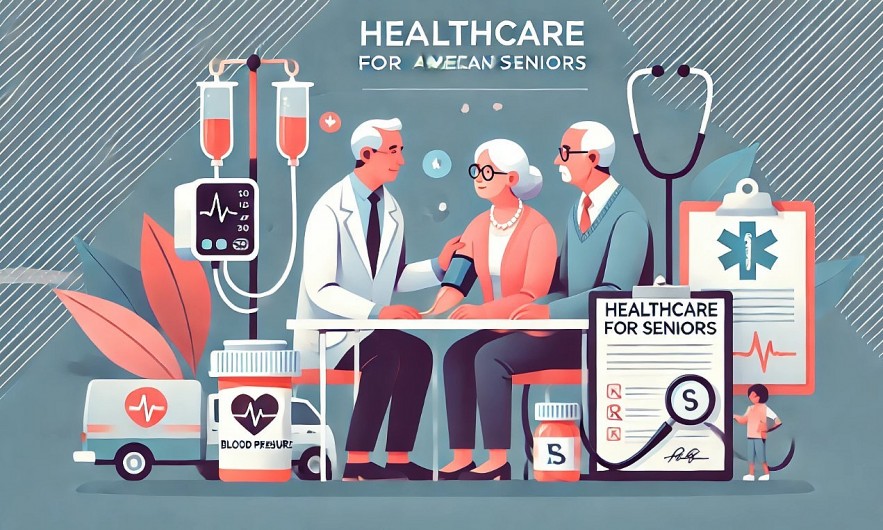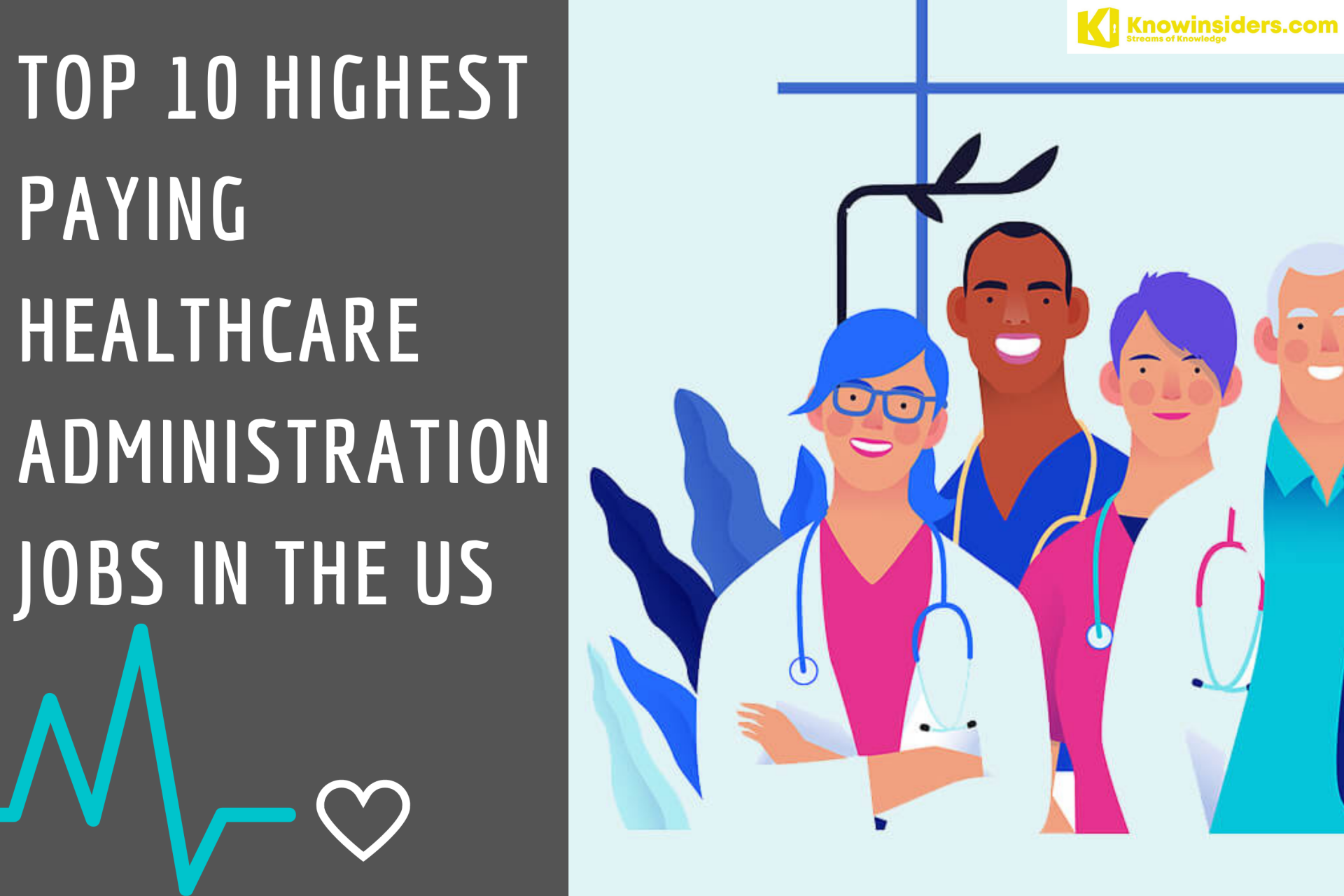Rising Medicare Premiums Costs in 2025: What American Seniors Need to Know
Medicare, a crucial lifeline for millions of American seniors, is facing significant changes in 2025. With rising healthcare costs and policy shifts under the new administration (Trump 2.0), seniors are expected to pay more for their Medicare coverage.
Learn more: Trump’s Healthcare Deregulation: Impact and Implications
 |
| Healthcare for American seniors |
1. Why Are Medicare Costs Rising in 2025?
Several factors are contributing to the increase in Medicare costs, including inflation, policy adjustments, and healthcare spending trends.
a. Healthcare Inflation
- Medical Costs Outpace Inflation: The cost of healthcare services, including hospital care, prescription drugs, and medical supplies, continues to rise faster than general inflation.
- Impact on Medicare: Higher healthcare costs mean increased premiums and out-of-pocket expenses for Medicare beneficiaries.
b. Policy Changes Under the New Administration
- Medicare Funding Adjustments: The Trump administration’s focus on reducing federal spending could shift more costs onto beneficiaries.
- Privatization Push: Increased reliance on Medicare Advantage plans (private insurance) may lead to variability in coverage and costs.
- Medicaid Block Grants: Indirectly, reductions in Medicaid funding may pressure healthcare providers, leading to higher fees that affect Medicare rates.
c. Aging Population
- As the population ages, the number of Medicare beneficiaries continues to grow. This increased demand for services strains the system, contributing to higher costs for seniors.
2. What Costs Will Seniors Face in 2025?
a. Premiums
-
Part B Premiums (Medical Services):
- Monthly premiums for Medicare Part B, which covers doctor visits and outpatient services, are projected to rise in 2025.
- Higher-income beneficiaries will face steeper premiums due to income-related adjustments.
-
Part D Premiums (Prescription Drugs):
- Costs for Medicare Part D plans, which cover prescription drugs, are also expected to increase, reflecting higher drug prices.
b. Deductibles and Coinsurance
- Part A Deductible (Hospital Coverage):
- Seniors will pay more out-of-pocket before Medicare Part A begins to cover hospital stays.
- Part B Coinsurance:
- Beneficiaries are responsible for 20% of approved charges for services like outpatient care, which can add up quickly as medical costs rise.
c. Out-of-Pocket Maximums
- While Medicare Advantage plans cap out-of-pocket costs, these limits are also expected to increase, leaving seniors with higher maximum expenses.
3. How Will These Changes Impact Seniors?
a. Financial Strain
- Low-Income Seniors: Those on fixed incomes may struggle to afford rising premiums and out-of-pocket expenses.
- Middle-Income Seniors: Even seniors who are not eligible for Medicaid assistance may face budgetary pressures.
b. Access to Care
- Provider Networks: Higher costs could lead to narrower provider networks, making it harder for seniors to access preferred doctors or hospitals.
- Prescription Drug Costs: Rising Part D premiums and out-of-pocket expenses might force seniors to skip medications, negatively impacting their health.
c. Increased Reliance on Private Plans
- Medicare Advantage Plans: While these plans often offer additional benefits, they may come with higher premiums or less flexibility in provider choice.
4. What Can Seniors Do to Manage Rising Costs?
While rising Medicare costs are inevitable, there are steps seniors can take to minimize their financial burden.
a. Review Your Coverage Options
- Compare Medicare Plans:
- During open enrollment, compare Medicare Advantage and Part D plans to ensure you’re getting the best value for your healthcare needs.
- Supplemental Insurance (Medigap):
- Consider Medigap plans to help cover deductibles, coinsurance, and other out-of-pocket expenses.
b. Maximize Preventive Care
- Medicare offers many preventive services, such as annual wellness visits and screenings, at no additional cost. Utilizing these services can help detect and address health issues early, potentially reducing future expenses.
c. Manage Prescription Costs
- Shop Around for Medications:
- Compare prices at different pharmacies and consider generic alternatives to save money.
- Enroll in Extra Help Programs:
- Low-income seniors may qualify for federal assistance to lower prescription drug costs.
d. Use Health Savings Accounts (HSAs)
- If you have an HSA, use it to pay for qualified medical expenses tax-free. While you cannot contribute to an HSA once enrolled in Medicare, you can still use existing funds to cover costs.
e. Advocate for Policy Changes
- Seniors can join advocacy groups to push for reforms that reduce Medicare costs and ensure equitable access to care.
 Trump’s New Policies and Their Wide-Ranging Impact Trump’s New Policies and Their Wide-Ranging Impact |
5. The Role of Policymakers and Providers
a. Policymakers
- Stabilizing Medicare Funding: Policymakers must balance cost-cutting measures with the need to protect seniors from excessive financial burdens.
- Addressing Prescription Drug Costs: Legislation to control drug prices, such as allowing Medicare to negotiate with pharmaceutical companies, could help alleviate costs.
b. Healthcare Providers
- Transparent Pricing: Providers should work to make pricing more transparent, helping seniors make informed decisions about their care.
- Community Support: Clinics and hospitals can partner with local organizations to offer subsidized care or financial counseling for low-income seniors.
6. What the Future Holds for Medicare
The rising costs of Medicare in 2025 highlight the challenges of an aging population and a healthcare system under financial pressure. While seniors will bear higher expenses, the broader question of Medicare’s sustainability remains. Balancing affordability, access, and quality will require collaboration among policymakers, providers, and beneficiaries.
Conclusion
Seniors will undoubtedly face higher Medicare costs in 2025, but understanding the changes and taking proactive steps can help minimize their impact. By reviewing coverage options, utilizing preventive care, and managing prescription costs, seniors can navigate these challenges more effectively. At the same time, ongoing efforts to reform healthcare policies will be crucial in ensuring that Medicare continues to provide essential support to future generations.
FAQs: Medicare Cost Increases in 2025
1. Why are Medicare costs increasing in 2025?
-
Rising healthcare costs, inflation, and policy changes under the new administration are contributing to higher Medicare premiums, deductibles, and out-of-pocket expenses.
2. Which parts of Medicare will see the biggest cost increases?
-
Part B (Medical Services): Higher premiums and coinsurance for outpatient care.
-
Part D (Prescription Drugs): Rising premiums and out-of-pocket costs due to increasing drug prices.
-
Part A (Hospital Coverage): Increased deductibles for inpatient stays.
3. How will income affect my Medicare premiums?
-
Higher-income beneficiaries will face steeper premiums due to income-related adjustments. Those with lower incomes may qualify for assistance programs to offset costs.
4. Can switching Medicare plans help me save money?
-
Yes. Comparing Medicare Advantage, Part D, or Medigap plans during open enrollment can help you find a plan that meets your needs at a lower cost.
5. What programs can help low-income seniors with Medicare costs?
-
Programs like Medicare Savings Programs (MSP) and Extra Help provide financial assistance for premiums, deductibles, and prescription drug costs.
6. Will preventive care still be free under Medicare?
-
Yes, many preventive services, such as wellness visits and screenings, remain free under Medicare, helping seniors manage their health proactively.
 10 Highest-Paying Healthcare Administration Jobs In The US Today 10 Highest-Paying Healthcare Administration Jobs In The US Today You aren't sure which 10 healthcare administration jobs in the United States pay the highest salaries. Take a look at the following list, which features ... |
 Top 10 Hottest Healthcare Trends To Rule The World In 2024 Top 10 Hottest Healthcare Trends To Rule The World In 2024 The healthcare industry is one that is always changing, with many new obstacles to overcome. Check out Top 10 Hottest Healthcare Trends To Rule The ... |
 Holidays and Leave Entitlements for Healthcare Workers in the United States Holidays and Leave Entitlements for Healthcare Workers in the United States Healthcare employees frequently have to work on holidays due to the nature of their jobs. Discover US holidays and vacations for healthcare professionals by joining ... |























